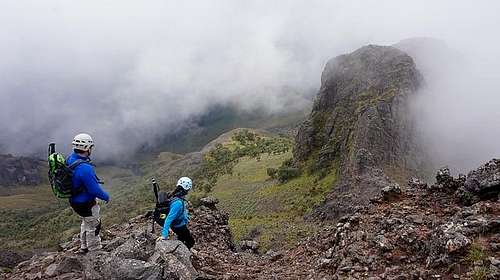New
to camping?
If you are new to camping there’s a lot of information to take in. In this article, I’m not going to reel off a giant list of what you should pack and equipment you should buy. Every packing list will be different depending on what type of camping holiday you are looking for and what part of the world you are visiting.
However, there is one rule that doesn’t change. Whether you are sleeping under the stars on a secluded mountainside or setting up camp in a four-star campsite with all the amenities, any self-respecting camper will be sure to follow the rule of responsibility.
Follow these responsible camping rules below and you’ll be all set for a comfortable, safe and memorable camping holiday.
Avoid Feeding Animals
While it is very tempting to interact with the animals you see around your camp, you should never feed animals. It is OK to give them water but feeding them is something you should avoid. Feeding deer, elk or moose could get them killed, as their digestive systems are only suited to natural food sources. For example, feeding animals corn can result in them producing high amounts of acid which causes them to become dehydrated.
Prepare your Campsite
Most campsites are already prepared for you to place your tent and light up a camp fire if you don't have a stove. If the area of your campsite is not prepared you have to do it yourself. When preparing your campsite you should avoid cutting trees and damaging plants as much as possible. You should be able to easily find broken wood for your fire in the vicinity of your camp.
Make sure that overnight camping is permitted in the area and regard rules about taking down tents at daybreak.
Keeping your campsite clean is as important as keeping your house clean. Don’t leave wood, branches, tools and garbage at your camp. If you don’t keep your camp organised you can easily hurt yourself. There’s nothing more disappointing than having your well-deserved holiday cut short by injury or illness.
Camping with a Tent
This is the most common type of camping and it should not be hard to find a proper location.
Buying a proper tent can be really difficult and you should carry out plenty of research before you purchase one. Again, it all depends on your needs and budget. The most important thing to look out for is that your tent of choice is waterproof.
If you decided that camping with a tent is something you would like to experience, here’s what you should know;
- Arrive on campsite no-later than mid-afternoon
- Pitch your tent but leave your sleeping bags rolled
- Keep your tent zipped at all times
- Decide where your fireplace will be and gather wood while you still have daylight
- Keep food out of the tent (at least from the one you will be sleeping in)
Arrive on campsite no-later than mid-afternoon
Arriving to your campsite before dark is important for numerous reasons, especially if you are visiting that area for the first time. You have to setup your camp before you go to explore your surroundings. Decide on the best place to pitch your tent, make a fireplace and dispose of garbage, tools, food, etc.
Pitch your tent but leave your sleeping bags rolled
Having your sleeping bags rolled will keep them warm and it should keep bugs out.
Keep your tent zipped at all times
The most important reason for keeping your tent tightly shut at all times is to keep insects like mosquitoes out of your tent so you can have a good night sleep. Don’t forget that you are in the woods and animals live there. A snake or hedgehog will often happily invite themselves into your tent if it is left open.
Decide where your fireplace will be and gather wood while you still have daylight.
You don’t need me to tell you that an open flame is dangerous. If you are having a fire pit make sure your fireplace is not to close to your tent (at least 10 feet away) or too close to dry bush or grass. Clean the area and dig a fire pit. If you place any rocks around the fire make sure they are dry; wet rocks when heated can explode dangerously.
Keep food out of the tent
Storing food outside of your tent will keep critters away from your sleeping area. If you have access to your car you should consider placing your food in the trunk.
Hygiene
Do not pollute areas with human waste, use facilities provided at campsites or if wild camping bury waste away from water courses and trails (or better still take it away with you).
A key to meals/drinks is access to water, this means ensuring a clean healthy supply (filters/sterilisers) and avoiding polluting water courses or ponds.
Hope this article will change your mind and encourage you to go on camping.
External Links
Useful resource:
Camps in UK





Comments
Post a Comment